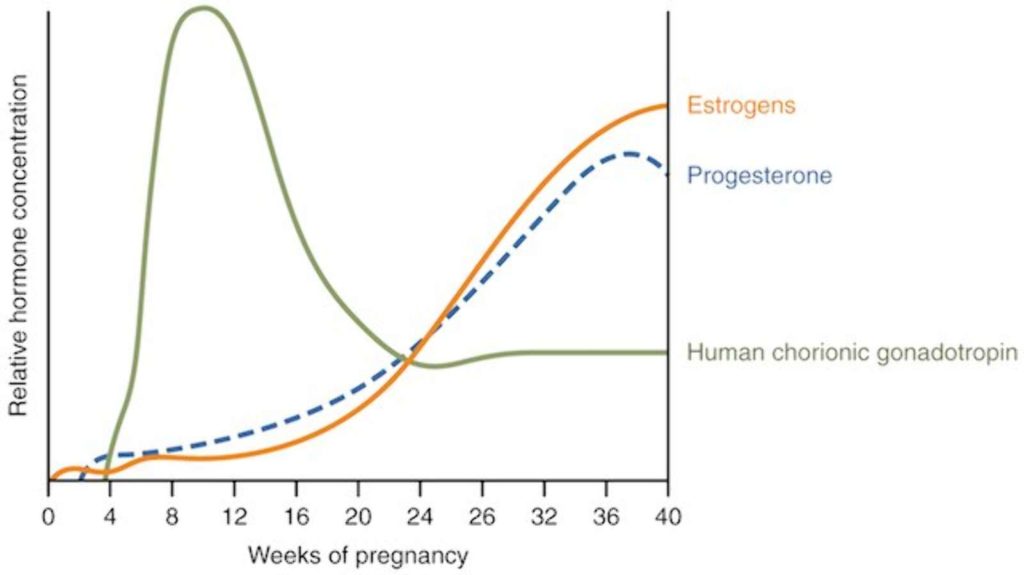What you’ll learn
This series focuses on maintaining an active, fit lifestyle throughout pregnancy. I’m talking about actually being fit, as an athlete. I climbed up to 2 weeks before delivery and weightlifted until 2 days before. I researched the heck out of it and summarized in this series in hopes of inspiring other women to continue their lifestyle, not to listen to conventional media for a moderate pregnancy.
Treat your body like an old lady.
Don’t lift more than 15lb.
Do moderate exercise for 30min like walking.
If you’re an avid rock climber, you probably don’t fit the demographic of most pregnancy-related information you’ll find (or be given, or be judged about).

The current state of health information
As I delved into research on pregnancy, I was appalled by the state of information available in the US. I quickly ended up shoving my head in a hole, knowing that humanity has procreated through harsher conditions than mine, until I found a reasonable resource. Problems:
- There’s no controlled experiments done with pregnant women. At best you have studies that look at correlation, not causation effects. The problem is confounding factors. Ex: The hormone hCG, which causes morning sickness, is (weakly) linked to “healthier” pregnancies. There’s also a correlation between drinking caffeine and miscarriages. Is the caffeine-miscarriage correlation direct causation? Or is it just that women who have high hCG levels have more morning sickness and thus choose to not drink coffee?
- There’s a large sex gap in FDA drug trials. It wasn’t until 1993 that the FDA required women to be included in drug trials, but it doesn’t require equal sex participation, or age or pregnancy factors. The FDA was still publishing action plans for inclusiveness in 2014. Can you take that drug, even if it’s just Tylenol, to alleviate that headache? Does it cross the placental barrier?
- FDA-approved drugs must prove that benefits outweigh risks. You need to demonstrate that the benefits (e.g. reduce morning sickness) outweigh the risks (which are unclear, since feeling queasy is just a minor symptom). Ever wonder why there’s no male contraceptives? There’s no benefits directly to men.
- The US has an aversion to non-US studies. There exist studies about drinking wine while pregnant from Europe and Australia. And others, yet they’re hard to find.
- The medically-recommended pregnancy guidelines assume an average health American. I guarantee you that just by virtue of reading this, you’re in better health and fitness than average America. Is it the best recommendation for me to reduce my physical output by 95%?
Conception Ain’t Easy
…and it’s not widely talked about. Even when I told a family member we were pregnant, her response was “why’d it take so long?” It took Jeremy and I 9 months to get pregnant–we swore that it might have gone faster if I had been overweight, alcoholic, and/or didn’t want kids. Data varies, but if you’re over 30, your chance of a sperm fertilizing an egg in any given month is 15%, and up to 75% of those miscarry before week 4 (you wouldn’t even know you conceived).
“Take it easy when you’re trying to conceive”
I personally didn’t change any of my exercise habits; I was healthy fit, ate well, and was climbing 3x/week and doing strength & interval workouts 2x/week. I was 118lb, 5’4″. The biggest factor I swear by (in most of life) is to minimize stress. Cortisol does wonders in wreaking havoc on your body. Climbing and fitness are a part of me, made me balanced and happy, and I didn’t change my lifestyle.
The First Trimester: Common Symptoms
You take your first home pregnancy test. Bam! You’re 4 weeks pregnant! Gestational age is measured by time from your last menstrual period, so you’re a month along before you know it.
- Sore boobs. Yep, they already start to grow mass in the first 3 months!
- Peeing 4-5 times a night. I had thought you only start peeing more in the 3rd trimester when your bladder is physically squished, but progesterone is a diuretic and starts increasing immediately when you’re pregnant.
- Feeling out of breath & heart racing from easy tasks like walking up and down stairs. Your blood volume increases by 30-50% starting the first trimester, which contributes to tiredness and odd blood pressure patterns as your blood vessel elasticity compensates.
- Queasiness. Thank the spike in hCG. I never felt like puking nor did puke, but felt like I was carsick from weeks 5-11. Morning sickness is a misnomer–I had it worse at dinnertime. I made large pots of Jook (chicken congee, triple the ginger).
- Cravings. Your body is siphoning its own nutrients to make a uterus and another human. Load up on healthy fats (olive oil, avocado, grass-fed meat), bone broth, and veggies. Your cravings for sweets and snacks will likely go away if you feed your body right.
- Constipation. Progesterone slows muscle activation, meaning food moves through your gut slower. Theoretically your body is absorbing more nutrients, becoming more efficient, to support baby. Experiment with fiber cereal, Docusate, milk of magnesia…
The First Trimester: Climbing and Working Out
Exercise during pregnancy, especially the 1st trimester, is relative to your own personal norm.
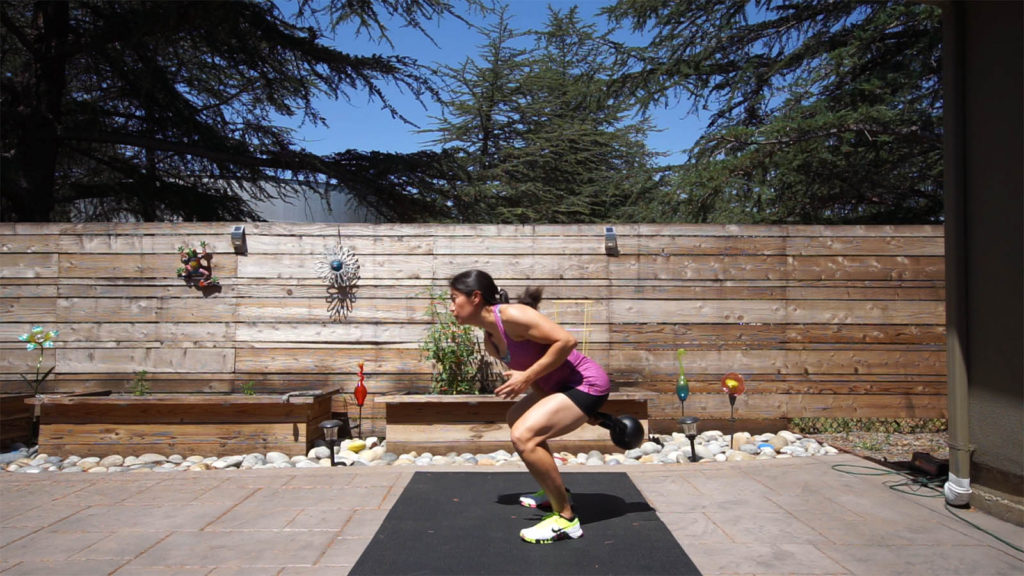
Appalling story: in my first “you’re pregnant” class (to ask all the stupid questions before you meet the Dr), the nurse went over guidelines to “do moderate exercise for 30min, 3 times a week, like walking.” The other 3 women in the class started furiously writing this down. I was definitely not in their same health state. In short: don’t start new exercise programs, and if your body feels comfortable doing what you did, you’re probably fine in the 1st trimester.
I continued to climb/boulder as normal through the 1st trimester. I weightlifted (squat, deadlift, overhead press) as normal; in fact, I PR’ed on squat. I did kettlebell HIIT workouts, keeping my heartrate in aerobic territory.
The First Trimester: Weight Gain
I gained 2-3lb the 1st trimester, starting 5’4″ 118lb. I didn’t pay much attention to it; some women lose weight because of nausea, some women gain way more. It’s also hard to pinpoint due to bloatedness and constipation.

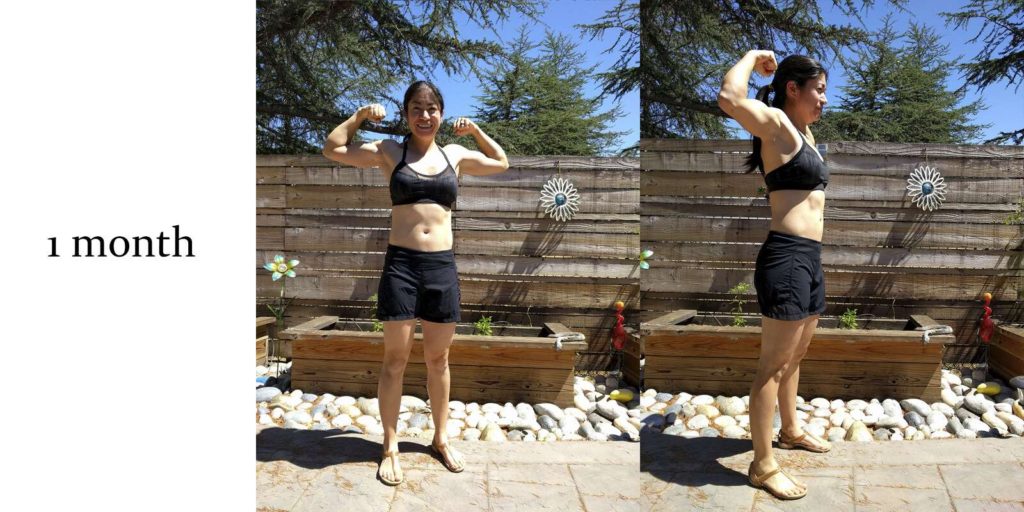
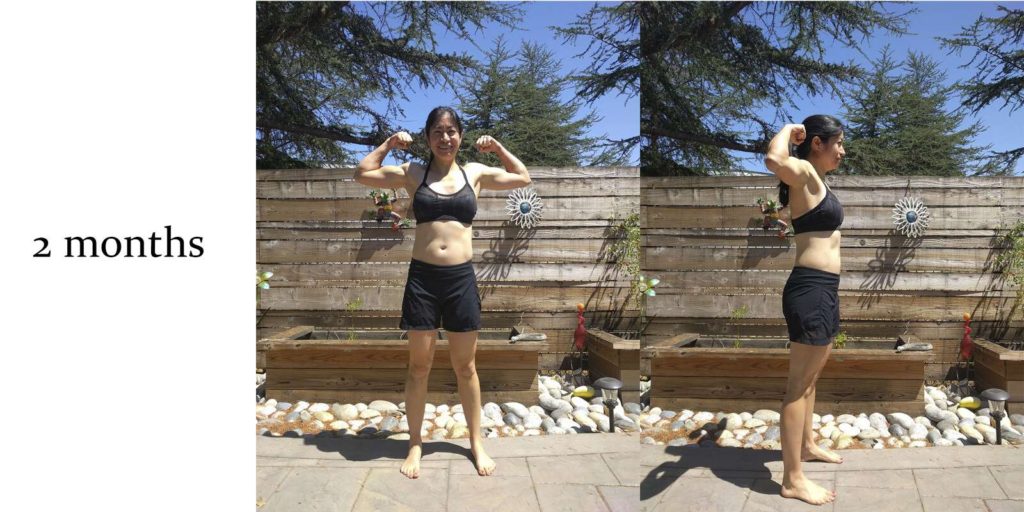
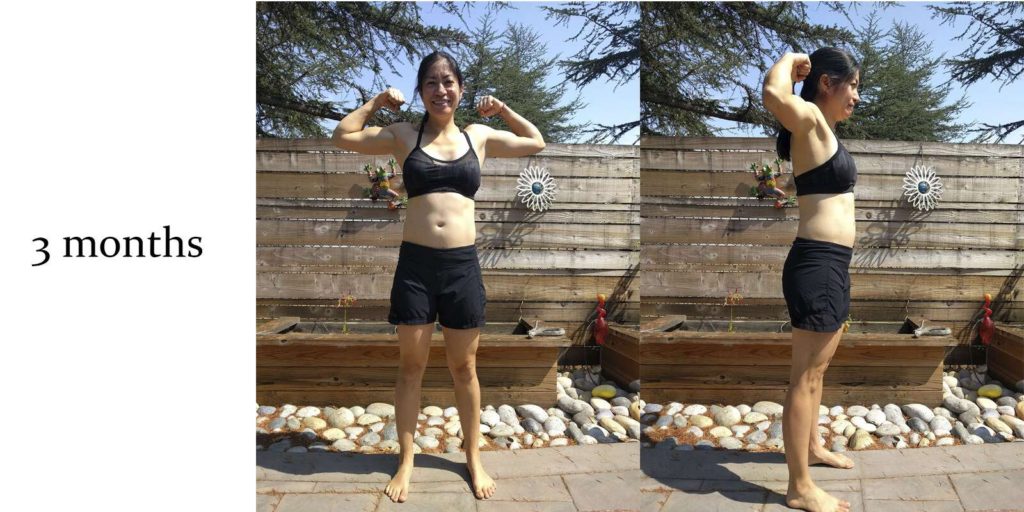
Redemption from the world of don’ts
Don’t eat soft cheeses, don’t clean kitty litter, don’t garden, don’t squat, don’t get your heartrate above 140, don’t lift more than 15lb, don’t let a single drop of alcohol pass your lips, don’t have caffeine.
I swear pregnant women are prime targets for efforts to control society–be pure, all else be damned. Most of the pregnancy “no’s” are myths. I highly urge you to ask why and do your own in-depth research on the actual risks and make your own informed decisions. Ask why three levels deep.
The book Expecting Better: Why Conventional Pregnancy Wisdom is Wrong is life-changing. It’s written by a female statistician who was frustrated by the same lack of information about pregnancy, gathered worldwide studies about pregnancy, threw out the ones that are confounded by poor demographics, and gives you a better source by which you can make your own decisions. The websites expectingscience.com and scienceofmom.com are great too.
These were worth the time to read. There’s a more complete list in my Books Actually Worth Your Time to Read article.
→ Explore more articles in Pregnancy & Kids
